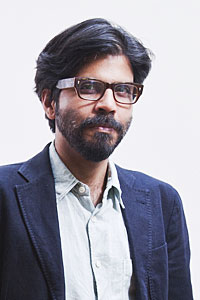'Islam's borders are bloody," Samuel Huntington once wrote, "and so are its innards." Since the Sept 11 attacks, that conventional wisdom has fuelled a bizarre search for the Islamic roots of modern terrorism.
"Islamic" fanaticism appeared to trump every likely explanation -- historical, sociological and psychological -- for the attacks and others that followed. Islam seemed in dire need of "moderates" if not a "Reformation" -- and many a quixotic government programme was launched to encourage both.
After nearly a decade and a half of escalating wars, massacres and rising anti-Muslim prejudice, it may be time to admit that the whole obsession with Islam has been catastrophically counter-productive. The roots of terrorism have always lain much closer -- planted deeper in the modern world that we inhabit than in a diversely-practiced faith that originated in 7th century Arabia.
Despite their DIY interpretations of jihad, men like Osama bin Laden and his deputy Ayman al-Zawahiri at least demonstrated some elementary knowledge of Islamic tradition and history. Many of the terrorists involved in recent attacks on Paris and Brussels seem rarely to have stepped inside a mosque.
These outcasts and delinquents were better known for their cocaine consumption and drunken carousing than for their knowledge of the hadith. Indeed, their recruiting sergeant, Khalid Zerkani, assured them that "past criminal convictions were not an obstacle to the Islamic cause, but a vital foundation".
This is the danger of what the Moroccan-Belgian writer Hind Fraihi, who authored a book about the Brussels district of Molenbeek, calls "a little Islam" -- some patently bogus religious claim that's then mixed with a profound "knowledge of guns, safe houses and the underground scene".
For exponents of Gangsta Islam, mass murder represents an act of self-empowerment -- not all that different from what Oscar Wilde called an "intensified assertion of individualism". Wilde hailed "sin" as release from stagnation; he was writing during the late 19th century when most of Europe's bourgeois elites, unable to accommodate mass aspirations for prosperity and stability, looked venal and devious.
Then, a widespread mood of disaffection and perverse defiance produced, among others, a poet like Rimbaud who openly proclaimed his desire "to be as scummy as possible" and Baudelaire's "dandy" who felt at ease only with criminals. These were not mere literary conceits. Terrorism first emerged during this period of traumatic social and economic transformation.
The man often called the first modern terrorist, a Frenchman named Emile Henry, bombed a mining company in 1892 and two years later, a much-frequented café near the Gare Saint-Lazare. In court, Henry claimed to have acted so that the "insolent triumphs" of the bourgeoisie were shattered, and "its golden calf would shake violently on its pedestal, until the final blow knocks it into the gutter and pools of blood".
France in the late 19th century suffered some of the worst excesses of terrorism by disenfranchised and radicalised young men; it also hosted proto-Fascist movements that demonised capitalism and moneymaking Jews.
Attacks were directed at institutions that seemed to represent the deceitful values of the bourgeoisie. There was one on a disreputable music hall in Lyons in 1882; it may have been directly provoked by an anarchist newspaper that said, "You can see there, especially after midnight, the fine flowers of the bourgeoisie and of commerce."
An anarchist attacked the Paris stock exchange in 1886; another hurled a bomb at the Chamber of Deputies in Paris in 1893. An Italian anarchist then stabbed to death the president of France for refusing to pardon the murderer.
As Richard Bach Jensen relates in his illuminating book, The Battle Against Anarchist Terrorism, European states responded to terrorism with brutal repression: Torture became common again, along with summary trials, executions and crackdowns. And governments cynically started to use the threat of terrorism to shore up domestic support.
The period also coincided with the birth of mass journalism. A sensationalistic press depicted the murderers as a powerful conspiratorial force spanning the globe. Predictably, important differences between their aims and character were ignored.
Our own intellectual confusion seems deeper, perhaps because history since the end of the cold war appeared to be ending in the universal triumph of democracy and capitalism.
Everyone on earth seemed on their way to being middle-class consumers. By interrupting this conviction of inevitability, Sept 11 and subsequent terrorist attacks appeared to be the work of people driven entirely by medieval religious fanaticism.
Today we're shocked by demagogues, from France to India to the US, who scapegoat minorities and stoke vengefulness among angry masses. But they reflect the same recurring pathologies of the modern world as the delinquents of Gangsta Islam -- and indeed the social outcasts who were rioting in the banlieues of Paris long before the pied pipers of Islamic State arrived on the scene.
It's now clear that a fixation with reforming Islam saved us from much difficult and necessary reflection on our secular political and economic institutions. The fact is that they definitely and urgently need a Reformation. ©2016 Bloomberg View
Pankaj Mishra, a Bloomberg View columnist, is an essayist and novelist based in India and London.
